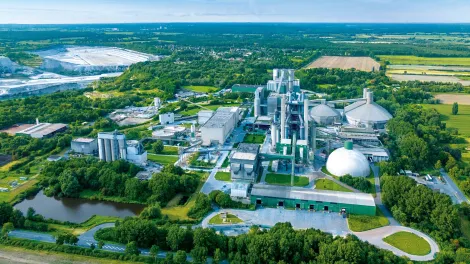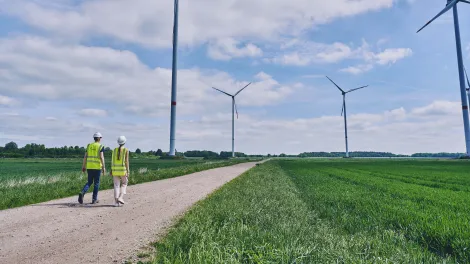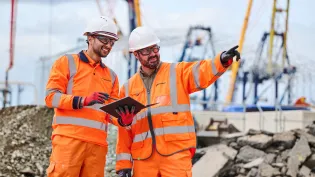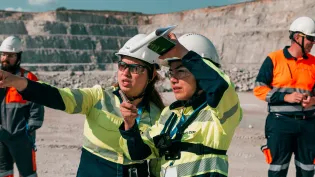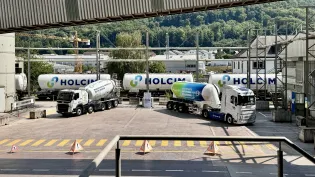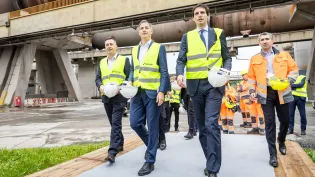net-zero ENABLERS
At Holcim, we are committed to advocating for public policy frameworks anchored in the principles of circular economy, accelerating demand for circular and low-carbon solutions globally and scaling up the use of advanced technologies. These frameworks should enable innovation and ensure that sustainability drives profitable growth.
How we're enabling net zero
Given the scale of today’s climate challenges, no single organization can tackle it alone. The realization of net-zero economies will require unprecedented collaboration:
- Between industry and policy makers to facilitate business case development for short- and long-term investments. In this way we can increase market demand for circular, low-carbon products and solutions across the construction sector.
- Across the construction value chain – from architects to project owners.
- With our people and communities through a proactive stakeholder engagement that focuses on awareness, dialogue and collaboration and is designed to create shared value.
With this in mind, Holcim advocates for the following climate policy positions.
Carbon capture, utilization and storage (CCUS)
One decarbonization lever that is fundamental to the sector’s transition is CCUS. The regulatory frameworks that are currently being developed will play fundamental roles in enabling the CCUS value chain to become the necessary engine of the low-carbon and circular transition.
We are advancing robust partnerships to unlock the business case for CCUS. A flexible yet unequivocal regulatory framework will require:
- Recognizing carbon use as an integral part of the transition.
- A dynamic, accessible and competitive value chain for CO2 transport and storage.
DEMAND FOR LOW-CARBON PRODUCTS AND SOLUTIONS
Holcim is committed to leading the transition toward low-carbon and circular construction by developing and introducing low-carbon, circular products and solutions worldwide. Integrating sustainability performance in building codes, public procurement and product standards, alongside traditional criteria (safety, performance, durability and affordability) will lead to a faster market uptake of such sustainable solutions.
We advocate for:
- Creating market demand through a dynamic standardization and public procurement framework.
- Using harmonized product standards.
- Swift implementation of the Carbon Border Adjustment Mechanism (CBAM).
We are a founding member of the First Movers Coalition (FMC) – which advances emerging climate technologies by leveraging members’ collective purchasing power, to achieve the world’s climate goals.
Lifecycle performance: a basis for the future of construction
Decarbonizing construction and making the value chain truly circular does not rely on a single technology or subsector. All materials and all technologies are part of the solution.
A policy framework and vision is needed that is based on technology neutrality and lifecycle performance. Defining the lifecycle performance that needs to be achieved to be aligned with 1.5°C will lead to a dynamic market based on innovation and performance.
competitive and decarbonized energy
Access to competitive decarbonized energy is a critical enabler to decarbonize the industry.
The industry requires:
- A well-functioning and interconnected electricity market with access to decarbonized energy at competitive prices.
- Investments in renewable energy assets facilitated through faster permitting procedures.
- Continued access to non-fossil sources of waste such as non-recyclable waste and biomass waste.
FUNDING FOR DECARBONIZED INDUSTRIAL GROWTH
In order to build strong business cases and ensure the deployment of low-carbon technologies, industry requires access to combined sources of funding. This can be facilitated through:
- A simplified application and approval process to funding sources.
- In Europe, a swift deployment of Carbon Contracts for Difference (CCFDs) at EU and national levels to allow for de-risking of projects.




